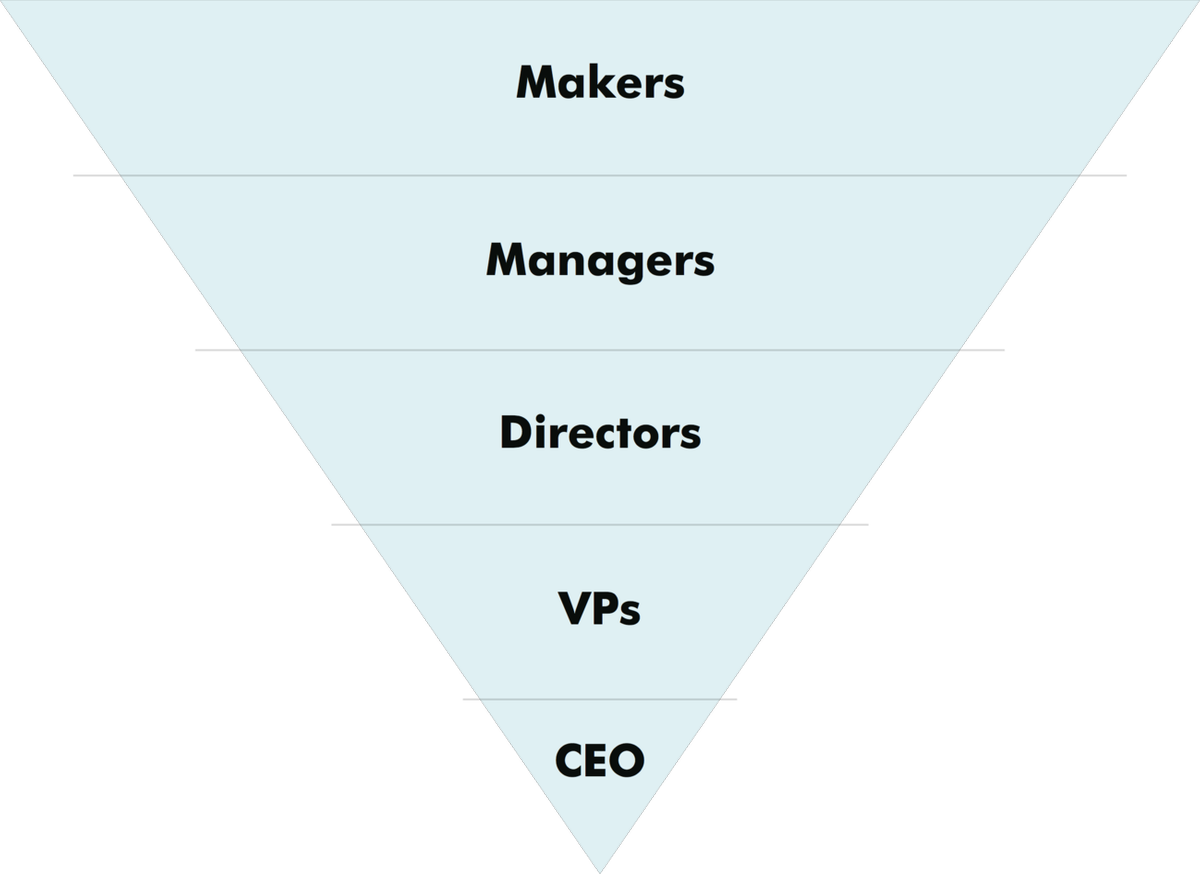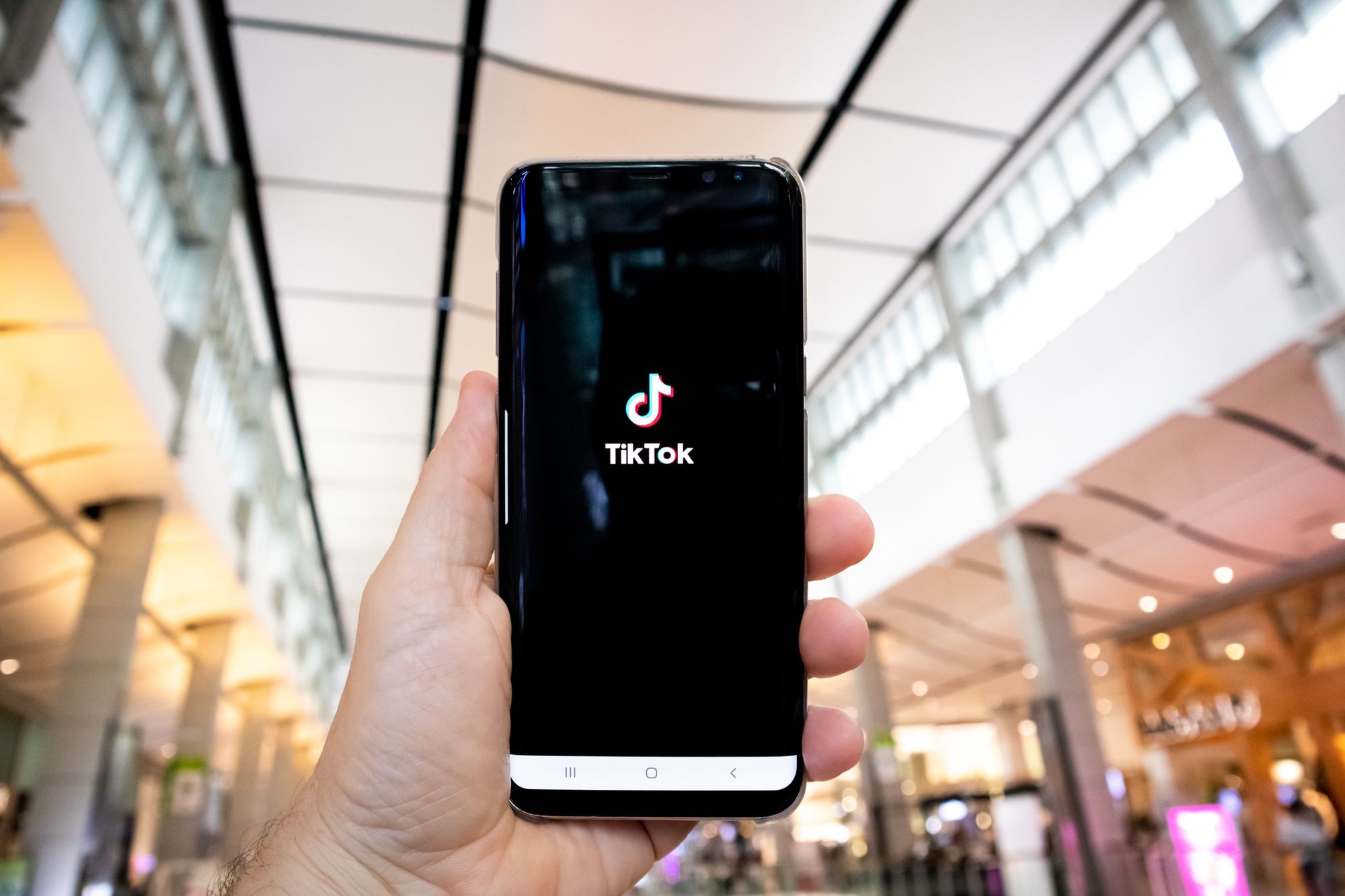
Having managers isn’t something we do at Buffer just because it’s what other companies usually do. We’ve always been proud to be different and to follow the path less travelled — even when it comes to people management.
Over the past few years, we’ve tried it all: from experimenting with full self-management (no managers) to having leads and managers supporting our team today.
Today, we have managers for one simple reason — great managers matter for creating a great place to work. We’re proud to be named one of Inc. Magazine’s Best Workplaces of 2018, and creating a supportive management structure has been key to this.
Research favors strong people management, too.
Google’s Project Oxygen found a causal relationship between great managers and stronger outcomes for teammates. The strongest managers help teammates to
- Feel more satisfaction in their work
- Stay on at their companies longer
- Achieve better performance outcomes
This isn’t restricted to individual teammate results, either. Companies that are well managed are more likely to remain in business over time, and research finds that “poor management” is one of the main causes of startup deaths.
Reflecting on our experiences at Buffer and the research about people management, we now believe strongly that great managers matter. I’d love to share the four reasons why we emphasize people management at Buffer today.
1. Great people demand great managers
The single biggest reason we focus on the craft of people management at Buffer is that great people demand great managers.
Talented, motivated, and high-performing teammates have many options for their careers, from working somewhere else to striking out on their own. In choosing to stay in their current workplace, teammates are making a bet that their current manager can support and grow their careers better than their next alternative.
You may have heard this line before:
“People leave managers, not companies.”
This isn’t just a catchy saying. Gallup found that 50 percent of Americans have left a job to “get away from their manager at some point in their career.”
This also explains research that having higher quality managers is more strongly correlated with good management outcomes than just hiring high quality teammates overall.
It’s not that hiring great people doesn’t matter. It absolutely does. The reality is that these great people will simply leave if their managers don’t meet their needs for coaching, career growth, and high performance. Managers who care about teammates and are effective in supporting their career growth can make a major difference to retention and to outcomes.
In this diagram below, the CEO supports the VPs, making sure they have clarity and are able to do their jobs well. The VPs support the Directors, Directors support Managers and the Managers, surprise, support the Makers. The whole structure exists to support and enable makers to do their best work.

Our own experience with self-management mirrors a lot of this research.
We found that without any managers we struggled to hire and grow our team, we saw some highly valued teammates leave, and our team overall felt dissatisfied with their personal growth and career progression. We needed to bring in a function of management back. We needed the support structure that great managers can provide.
2. Great managers empower through intrinsic motivation (not extrinsic rewards)
The best managers will tap into the intrinsic motivation of their teammates, helping people feel inspired and deeply motivated to bring their best ideas to work every day. They tap into our “intrinsic” human motivations by creating high levels of autonomy, mastery and purpose, instead of focusing on punishments or rewards like bonuses (“extrinsic” motivators).
In creative work especially, this results in dramatically better performance and happier, more engaged teammates.
For work that is non-routine, for work that isn’t algorithmic but is more conceptual, that requires big picture thinking, that requires a greater degree of creativity, that requires solving more complicated, complex challenges, the if-then motivators don’t work very well at all… The behavioral science is very, very clear that– give people those kinds of motivators for creative, conceptual, complex tasks, and they will often underperform. – Daniel Pink
Great managers will successfully balance coaching teammates and giving them constructive feedback to build up their mastery over skills, while avoiding micro-managing that threatens the sense of having autonomy in your work. Strong managers create empowerment, removing roadblocks for teammates, supporting career growth, and sharing a compelling vision for each teammate for how their work fits in to the bigger picture .. and why it matters.
Having managers successfully align the needs of your organization with the opportunities for challenge and growth that teammates are looking for is one of the most powerful ways to strengthen both teammate satisfaction and company performance.
3. Great managers build trust and drive creativity
When Google launched its project into analyzing what makes a successful team, they found it’s not about the skills of the individual teammates, and it’s not about strategy or vision.
The most successful teams had one surprising thing in common: high levels of trust.
Teams where people felt okay asking questions, straying beyond their zone of expertise to collaborate, and making mistakes were the most effective teams.
This kind of trust is known as “psychological safety” and it’s not just key to a strong culture — creativity, learning, and innovative don’t happen without it.
Great managers take active steps to role-model and build our culture and values and to sustain high levels of psychological safety and inclusive environments on their teams. When everyone is welcomed to participate, feels a sense of belonging, and contributes to the team, those teams outperform similar teams without that level of trust. Being creative is all about being prepared to be wrong and to make mistakes, and it’s tough to risk being wrong in a team environment that is judgmental or focused on perfection.
This is where managers can normalize learning, encourage a culture of trust, and in doing so drive a higher level of creativity.
4. Great managers navigate change – because what got you here won’t get you there
Lastly, great managers matter because aside from the day to day of running a successful business and having productive and successful teams (no small aside!), they can lead your company through the changes that you will need to make in order to survive.
Navigating change is essential to staying relevant as the competitive landscape changes, and research shows that even otherwise well-run and successful companies ultimately fail because managers stick to the status quo.
Having a strategy and the vision to change is necessary, but simply looking to senior leadership to provide this isn’t enough. Half of all companies that recognize the need for major strategic change and decide to undergo a transformation fail to successfully carry out that transformation. This comes down to the difference at the individual maker and team level, between line managers
that keep your team pushing forward through complacency and paralysis.
Great managers both got you here, and also, they will take you to the next stage.
Over to you
- How do you perceive the impact of managers in your workplace?
- Do you have any stories of management success?
I’d love to hear from you.
I hope that sharing our experiences and research at Buffer has helped convince you of the power of great managers. We’ll be writing more about management topics in the future (for instance, how poor management can be much worse than nothing at all, and how to make the move from maker to manager). We’d love to have you subscribe for updates!
Try Buffer for free
140,000+ small businesses like yours use Buffer to build their brand on social media every month
Get started nowRelated Articles

How the Buffer Customer Advocacy Team set up their book club, plus their key takeaways from their first read: Unreasonable Hospitality by Will Guidara.

In this article, the Buffer Content team shares exactly how and where we use AI in our work.

Here we go again. If you work in social media, it’s nothing new to adapt and change your strategy based on the ever-changing algorithms and the rise and fall of social networks. (Who else was on Vine? 🙋🏻♀️) But, of course, we wish you didn’t have to. The latest wave for social media marketers and creators is that TikTok might be banned in the U.S. The short-form video app has become one of the most widely-used social media platforms and is credited with impacting trends and cultural shifts.